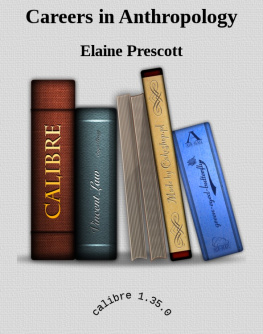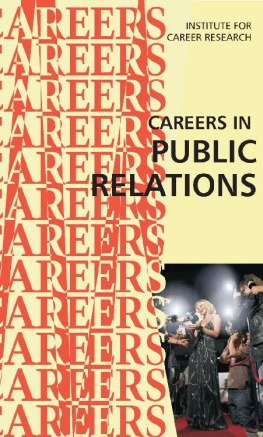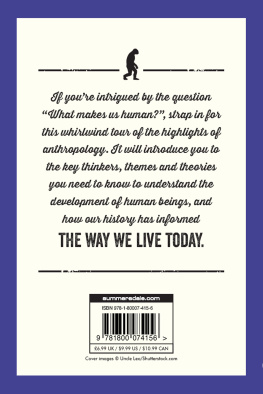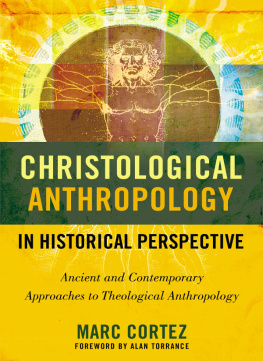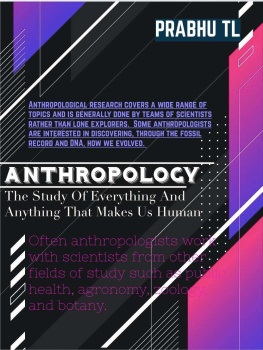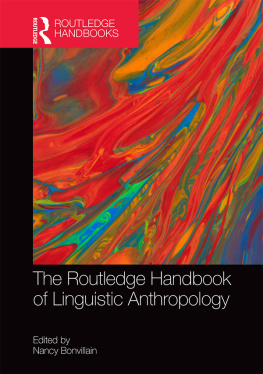Institute For Career Research - Careers in Anthropology: Archaeology
Here you can read online Institute For Career Research - Careers in Anthropology: Archaeology full text of the book (entire story) in english for free. Download pdf and epub, get meaning, cover and reviews about this ebook. year: 2014, publisher: Institute For Career Research, genre: Politics. Description of the work, (preface) as well as reviews are available. Best literature library LitArk.com created for fans of good reading and offers a wide selection of genres:
Romance novel
Science fiction
Adventure
Detective
Science
History
Home and family
Prose
Art
Politics
Computer
Non-fiction
Religion
Business
Children
Humor
Choose a favorite category and find really read worthwhile books. Enjoy immersion in the world of imagination, feel the emotions of the characters or learn something new for yourself, make an fascinating discovery.
- Book:Careers in Anthropology: Archaeology
- Author:
- Publisher:Institute For Career Research
- Genre:
- Year:2014
- Rating:4 / 5
- Favourites:Add to favourites
- Your mark:
Careers in Anthropology: Archaeology: summary, description and annotation
We offer to read an annotation, description, summary or preface (depends on what the author of the book "Careers in Anthropology: Archaeology" wrote himself). If you haven't found the necessary information about the book — write in the comments, we will try to find it.
An ancient Indic language known as Sanskrit was discovered in the late 18th century by the British civil servant and intellectual, Sir William Jones. This discovery set the stage for intensive work in comparative historical linguistics that has continued ever since. In 2014, archaeologists in Egypt discovered the remains of a previously unknown pharaoh who reigned more than 3,600 years ago. What do linguistics and archaeology have in common? They are both scientific endeavors, pursued under the umbrella of anthropology.
Anthropology is the scientific study and analysis of human beings and humanity, including all the worlds cultures, ethnicities, customs, artifacts, knowledge, habits, history, and languages. It emerged as a distinct academic discipline in England and America in the late 19th century and continues to expand its scope of study.
Anthropology is composed of four closely related fields.
Physical Anthropology
The first is physical (biological) anthropology, which studies the human being as a living organism. Population genetics and primatology are common areas of focus here.
Cultural Anthropology
The second, and largest specialty, is cultural anthropology. This involves studying specific populations up close and personal over long periods of time to learn more about their social and cultural patterns.
Linguistic Anthropology
The third field is linguistic anthropology, which focuses on language, from its origins, to how it affects complex social interactions in a modern, globally connected world.
Archaeology
The fourth field is archaeology, perhaps the most famous of the anthropological disciplines. Archaeologists can be found in the field, anywhere in the world, digging for artifacts, old bones, and other clues to how people lived in past cultures.
This is a great time to become an anthropologist. It has always been intellectually exciting. Today, more than ever, a degree in anthropology opens doors to a variety of career paths. Anthropologists have traditionally worked within the confines of academia, teaching and conducting research. This is no longer true. Anthropology graduates today are well-prepared for excellent jobs that require critical thinking skills in the realms of business, research, advocacy, and public service. Their training is uniquely well suited to the 21st century. The economy is increasingly international and, in turn, workforces and markets are more diverse. Anthropology is the primary discipline that helps people understand how communities and organizations work, even when they are separated by oceans and continents.
Anthropology offers many opportunities with good earnings, in both the public and private sectors. Anthropologists working for non-governmental organizations, such as international health organizations and development banks, helping to design and implement a wide variety of programs worldwide. Many businesses look specifically for anthropologists, recognizing the value of their perspective on a corporate team as they struggle to understand consumer preference patterns not readily apparent through simple statistical or survey methods.
Agencies at all levels of government employ anthropologists to identify and protect cultural resources. Even local police departments need these professionals. Forensic anthropologists, in careers glamorized by Hollywood and popular novels, are called upon to help identify mysterious or unknown remains.
Institute For Career Research: author's other books
Who wrote Careers in Anthropology: Archaeology? Find out the surname, the name of the author of the book and a list of all author's works by series.

